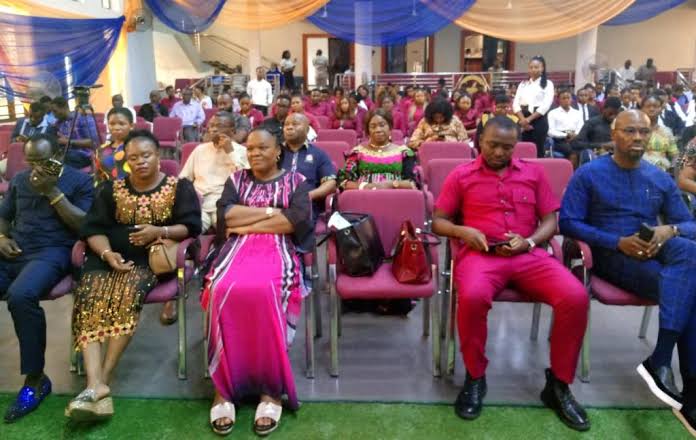Lawrence Nwimo, Awka
The 2023 Hybrid International Conference of the Unizik Business School, UBS, has ended with a call on African leaders to strengthen democratic institutions to attain economic growth and development of Africa.
The two-day conference was held at the ASUU/NAU Secretariat of the Nnamdi Azikiwe University, Awka, with the theme, “Political Transition and Economic Development: The African Experience.”
A communique raised at the event emphasised the need for the existence of democratic institutions that are critical to the socioeconomic growth and political development of countries in the continent.
It said “Democratic institutions such as electoral commissions, judicial systems, and oversight bodies be strengthened. A true independence of these institutions would yield transparency and accountability.”
The communique which was signed by the Director of UBS, Prof Emma Okoye, and the Chairperson Local Organising Committee (LOC), Prof. Ezimma Nnabuife, underscored the importance of ensuring inclusive governance. It stated that promoting more robust political participation is the panacea for any perceived or evident marginalisation.
The communique further read: “Civic education with a strong component of voter awareness should be designed and administered especially to the lower-class population. This will engender empowering citizens about their rights and civic responsibilities.
“Non-compromised security measures are required before, during, and after elections. This could be achieved by training professional security personnel, that is, personnel with zero party interest, whose allegiance must always be to the state and constitution, not the party in power.
“Establishing institutions charged with creating and strengthening mechanisms for a peaceful resolution of disputes and conflicts that arise before, during, and after elections.
“Designing and instituting effective strategies for early warning systems, especially as it has to do with curbing violent protests and regional uprisings. Such systems should include productive collaboration with civil society organisations, security agencies, international partners, and local community leaders.
“Implementing international organizations’ recommendations on peace, political engagements, and governance to promote political best practices in elections, democratic governance, and democratic political transition.
“The truth about the youths being the leaders of tomorrow should be politically recognised in engaging the youths in political institutions, election, and economic processes. This kind of empowerment will provide for the continuity of sustenance of democratic gains and the deepening of the democratic culture.
“Adopting and pursuing achieving the Sustainable Development Goals (SDGs) with the target of resolving socio-economic issues such as poverty, inequality, unemployment, and poor infrastructural facilities, which would provide for economic development and consequently political stability.”
During the conference, Prof. Obiora Okonkwo, in his keynote address, examined the African political journey focusing on the political transition from independence to date in which he considered the factors influencing peaceful and problematic transitions in Africa to include political transitions, democratic governance, and socioeconomic development in Africa.

